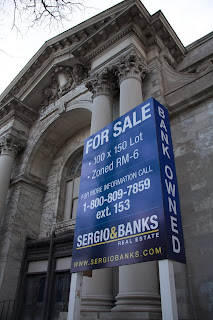The Best Editorial of the Week
Paul Krugman, The New York Times
The Real Winners
The Next Best Editorial of the Week
Noah Feldman, Bloomberg.com
Roberts Chooses Restraint Over History
Third Best Editorial of the Week
Jeremy Courtney, Sojourners
Jimmy Carter Tries to Pull the Log from America's Eye
Best Sermon of the Week (Wish I Had Been There to Hear It)
William Barber, II, Wild Goose Festival
With God Somethings Never Change
Most Insightful Theological Piece
Morgan Guyton, Jesus Creed
Thoughts on Penal Substitution
Best Informative Piece on the Bible
Joel Hoffman, The Huffington Post
Five Biblical Images You Probably Misunderstood
And Now A Word from The Monastery
Brother Mark Brown, SSJE
Church and Combustion
A Little Church Humor
Jon Acuff, Stuff Christians Like
Wishing You Had An Easy Job Like Working In A Church
This One Will Make You Think
Elizabeth Kolbert, The New Yorker
Why Are American Kids So Spoiled?
This One Will Make You Think, Too!
Peggy Drexler, The Huffington Post
A Warning Against a Culture Where Every Child Wins
A Third Piece on Parenting - Christian Parenting
Genealda Woggon, Building Faith
Keepers of Wonder
Two Pieces That Are Not About The Church!
Kim Fuller, Organicsoul.com
Say an "Om"
W.W. Denslow, Dard Hunter Studio
The Denslow Seahorse
Thoughtful Reflection from the Unchurched to the Churched
John McAndrew, Uncommontary
And Open Letter to Christian Pastors and Other Religious Leaders
Interesting Piece on a Post-Denominational World
Derek Penwell, Dmergent
Community and Ministry in a Post-Denominational World
Great Piece on the Furture Church
Tom Long, The Christian Century
Future - Fatigue
Rekindling the Joy
Mark Sandlin, The God Article
The Church that Doesn't Steal Your Joy
The General Convention of the Episcopal Church Begins It's Triennium This Week - a "Plethora" of Thought
Elizabeth Keaton, Telling Secrets
The Family Feud
An Invitation to Dialogue
Susan Brown Snook, A Good and Joyful Thing
The Good, the Bad and the Ugly, Part II
The Acts 8 Moment: A Call to Prayer and Action
The Nation Church Website
The General Convention Information Page
Father Jonathan's Blog
Same Sex Blessings and Marriage
It All Becomes Clear Now
Scott Gunn, Seven Whole Days
Resolutely Reading - Structural Reform
Resolutely Reading - Politcs
Tom Ferguson, The Crusty Old Dean
Let the Dead Bury the Dead
Welcome to Terrordome (This is a MUST read!)
ENOUGH ALREADY!!!!
Most Viewed Post at the John 13:34 Blog This Week
Thursday, June 28
The Real Issue Facing the Episcopal Church
Always End With Children, Animals or Adults Having Fun
Youtube
Love One Another - Brian

























